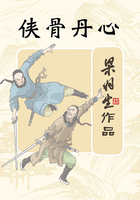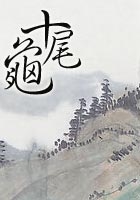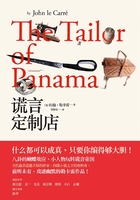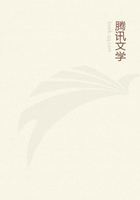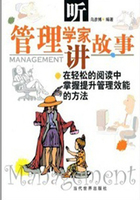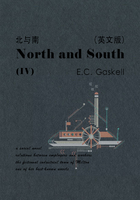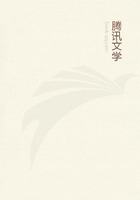INTIMATIONS BY WINTER: AN AMBASSADOR SUMMONER
Among the force which sweep and play throughout the universe, untutored man is but a wisp in the wind. Our civilization is still in a middle stage, scarcely beast in that it is no longer wholly guided by instinct; scarcely human, in that it is not yet wholly guided by reason. On the tiger no responsibility rests. We see him aligned by nature with the forces of life-he is born into their keeping and without though he is protected. We see man far removed from the lairs of the jungles, his innate instincts dulled by too near an approach to free-will, his free-will not sufficiently developed to replace his instincts and afford him perfect guidance. He is becoming too wise to hearken always to instincts and desires; he is still too weak to always prevail against them. As a beast, the forces of life aligned him with them; with the forces. In this intermediate stage he wavers- neither drawn in her money with nature by his instincts nor yet wisely putting himself into harmony by his own free-will. He is even as wisp in the wind, moved by every breath of passion, acting now by his will and now by his instincts, erring with one, only-a creature of incalculable variability. We have the consolation of knowing that evolution is ever in action, that the ideal is a light that cannot fail. He will not forever balance thus between good and evil. When this jangle of free-will and instinct shall have been adjusted, when perfect understanding has given the former the power to replace the latter entirely, man will no longer vary. The nettle of understanding will yet point steadfast and unwavering to the distant pole of truth.
In Carrie-as in how many of our wordings do they not?-instinct and reason, desire and understanding, were at war for the mastery. She followed whither her craving led. She was as yet more drawn than she drew.
When Minnie found the note next morning, after a night of mingled wonder and anxiety, which was not exactly touched by yearning, sorrow, or love, she exclaimed:
"Well, what do you think of that?"
"What?" said Hanson.
"Sister Carrie has gone to live somewhere else."
Hanson jumped out of bed with more celerity than he usually displayed and looked at the note. The only indication of his thoughts came in the form of a little clicking sound made by his tongue; the sound some people make when they wish to urge on a horse.
"Where do you suppose she's gone to?" said Minnie thoroughly aroused.
"I don't know," a touch of cynicism lighting his eye.
"Now she has gone and done it."
Minnie moved her head in a puzzled way.
"Oh, oh," she said, "she doesn't know what she has done."
"Well," said Hanson after a while, sticking his hands out before him, "what can you do?"
Minnie's womanly nature was higher than this. She figured the possibilities in such cases.
"Oh," she said at least, "poor Sister Carrie!"
At the time of this particular conversation, which occurred at 5 am, that little soldier of fortune was sleeping in rather troubled sleep in her new room, alone.
Carrie's new state was remarkable in that she saw possibilities in it. She was no sensualist, longing to drowse sleepily in the lap of luxury. She turned about, troubled by her daring, glad of her release, wondering whether she would get something to do, wondering what Drouet would do. That worthy had his future fixed for him beyond a peradventure. He could not see clearly enough to wish to do differently. He was drawn by his innate desire to act the old pursuing part. He would need to delight himself with Carrie as surely as he would need to eat his heavy breakfast. He might suffer the least rudimentary twinge of conscience in whatever he did, and in just so far he was evil and sinning. But whatever twinges of conscience he might have would be rudimentary, you may be sure.
The next day he called upon Carrie, and she saw him in her chamber. He was the same jolly, enlivening soul.
"Aw," he said, "what are you looking so blue about? Come on out to breakfast. You want to get your other clothes to-day."
Carrie looked at him with the hew of shifting thought in her large eyes.
"I wish I could get something to do," she said.
"You'll get that all right," said Drouet. "What's the use worrying right now? Get yourself fixed up. See the city. I won't hurt you."
"I know you won't," she remarked, half truthfully.
"Got on the new shoes, haven't you? Stick 'em out George, they look fine. Put on your jacket."
Carrie obeyed.
"Say, that fits like a T, don't it?" he remarked, feeling the set of it at the waist and eyeing it from a few paces with real pleasure. " What you need now is a new shirt. Let's go to breakfast."
Carrie put on her hat.
"Where are the gloves?" he inquired.
"Here," she said, taking them out of the bureau drawer.
"Now, come on," he said.
Thus the first hour of misgiving was swept away.
It went this way on every occasion. Drouet did not leave her much alone. She had time for some lone wanderings, but mostly he filled her hours with skirt and shirt waist. With his money she purchased the little necessaries of toilet, until at last she looked quite another maiden. The mirror convinced her of a few things which she had long believed. She was pretty, yes, indeed! How nice her had set, and weren't her eyes pretty. She caught her little red lip with her teeth and felt her first thrill of power Drouet was so good.
They went to see " The Mikado" one evening, an open which was hilariously popular at that time. Before going they made off for the Windsor dinning-room, which was in Dearborn Street, a considerable distance from Carrie's room. It was blowing up cold, and out of her window. Carrie could see the western sky, still pink with the fading light, but steely blue at the top where it met the darkness. A long, thin cloud of pink hung in midair, shape like some island in a far-off sea. Somehow the swaying of some dead branches of trees across the way brought back the picture with which she was familiar when she looked from their front window in December days a home.
She paused and wrung her little hands.
"What's the matter?" said Drouet.
"Oh, I don't know," she said, her lip trembling.
He sensed something, and slipped his arm over her shoulder, patting her arm.
"Come on," he said gently, " you're all right."
She turned to slip on her jacket.
"Better wear that boa about throat to-night."
They walked north on Wabash to Adams Street and then west. The lights in the stores were already shinning out in gushes of golden hue. The are lights were sputtering overhead, and high up were the lighted window of the tall office buildings. The chill wind whipped in and out in gusty breaths. Homeward bound, the six o'clock throng bumped and jostled. Light overcoats were turned up about the ears, hats were pulled down. Little shop girls went fluttering by in pairs and fours, chattering, laughing. It was a spectacle of warm-blooded humanity.
Suddenly a pair of eye met Carrie's in recognition. They were looking out from a group of poorly dressed girls. Their clothes were faded and loose-hanging, their jackets old, their general make-up shabby.
Carrie recognized the glance and the girl. She was one of those who worked at the machines in the shoe factory. The latter looked, Carrie felt as if some great tide had rolled between them. The old dress and the old machine came back. She actually started. Drouet didn't notice until Carrie bumped into a pedestrian.
"You must be thinking," he said.
They dined and went to the theatre. That spectacle pleased Carrie immensely. The color and grace of it caught her eye. She had vain imaginings about place. and power, about far-off lands and magnificent people. When it was over, the clatter of coaches and the throng of fine ladies made her stare.
"Wait a minute," said Drouet, holding her back in the showy foyer where ladies and gentlemen were moving in a social crush, skirts rustling, lace-covered heads nodding, white teeth showing through parted lips. "Let's see."
"Sixty-seven," the coach-caller was saying, his voice lifted in a sort of euphonious cry. "Sixty-seven."
"Isn't it fine?" said Carrie.
"Great," said Drouet. He was as much affected by this show of finery and gayety as she. He pressed her arm warmly. Once she looked up, her even teeth glistening through her smiling lips, her eyes alight. As they were moving out he whispered down to her, "You look lovely!" They were right where the coach-caller was swinging open a coach-door and ushering in two ladies.
"You stick to me and we'll have a coach." laughed Drouet.
Carrie scarcely heard, her head was so full of the swig of life.
They stopped in at a restaurant for a little after-theater lunch. Just a shade of a though of the hour entered Carrie's head, but there was no household law to govern her now. If any habits ever had time to fix upon her things. They will drive the really non-religious mind out of bed to say prayers that are only a custom and not a devotion. The victim of habit, when he had neglected the thing which it was his custom to do, feels a little scratching in the brain, a little irritating something which comes of being out of the rut, and images it to be that prick of conscience, the still, small voice that is urging him ever to righteousness. If the digression is unusual enough, the drag of habit will be heavy enough to cause the unreasoning victim to return and perform the perfunctory thing. " Now, bless me, as a matter of fact, it has merely done its old, unbreakable trick once again.
Carrie had no excellent home principles fixed upon her. If she had, she would have been more consciously distressed. Now the lunch went off with considerable warmth. Under the influence of the varied occurrences, the fine, invisible passion which was emanating from Drouet, the food, the still unusual luxury, she relaxed and heard with open ears. She was again the victim of the city's hypnotic influence.
"Well," said Drouet at last, "we had better be going."
They had been dawdling over the dishes, and their eyes had frequently met. Carrie could not help but feel the vibration of force which followed, which, indeed, was his gaze. He had a way of touching her hand in explanation, as if to impress a fact upon her. He touched it now as he spoke of going.
They arose and went out into the street. The downtown section was now bare, save for a few whistling strollers, a few owl cars, a few open resorts whose windows were still bright. Out Wabash Avenue they strolled Drouet still pouring forth his volume of small information. He had Carrie's arm in his, and held it closely as be explained. Once in a while, after some witticism, he would look down, and his eyes would meet hers. At last they came to the steps, and Carrie stood up on the first one, her hand head now coming even with his own. He took her hand and held it genially. He looked steadily at her as she glanced about, warmly musing.
At about that hour, Minnie was soundly sleeping, after a long evening of troubled thought. She had her elbow in an awkward position under her side. The muscles so held irritated a few nerves, and now a vague scene floated in on the drowsy mind. She fancied she and Carrie were somewhere beside an old coal-mine. She could see the tall runway and the heap of earth and coal cast out. There was a deep pit, into which they were looking; they could see the curious wet stones far down where the wall disappeared in vague shadows. An old basket, used for descending, was hanging there, fastened by a worn rope.
"Let's get in," said Carrie.
"Oh, no," said Minnie.
"Yes, come on," said Carrie.
She began to pull the basket over, and now, in spite of all protest, she had swung over and was going down.
"Carrie," she called, "Carrie, come back;" but Carrie was far down now and the shadow had swallowed her completely.
She moved her arm.
Now the mystic scenery merged queerly and the place was by waters she had never seen. They were upon some board or ground or something that reached far out, and at the end of this was Carrie. They looked about, and now the thing was sinking, and Minnie heard the low sip of the encroaching water.
"Come on, Carrie," she called, but Carrie was reaching farther out. She seemed to recede, and now it was difficult to call to her.
"Carrie," she called, "Carrie," but her own voice sounded far away, and the strange waters were blurring everything. She came away suffering as though she had lost something. She was more inexpressibly sad thus she had ever been in life.
It was this way through many shifts of the tired brain, those curious phantoms of the spirit slipping in, blurring strange scenes, one with the other. The last one made her cry out, for Carrie was slipping away somewhere over a rock, and her fingers had let loose and she had seen her falling.
"Minnie! What's the matter? Here, wake up," said Hanson, disturbed, and shaking her by the shoulder.
"Wha-what's the matter?" said Minnie, drowsily.
"Wake up," he said, " and turn over. You're talking in your sleep."
A week or so later Drouet strolled into Fitzgerald and Moy's spruce in dress and manner.
"Hello, Charley," said Hurstwood, looking out from his office door.
Drouet strolled over and looked in upon the manger at his desk.
"When do you go out on the road again?" he inquired.
"Pretty soon," said Drouet.
"Haven't seen much of you this trip," said Hurstwood.
"Well, I've been busy," said Drouet.
They talked some few minutes on general topics.
"Say," said Drouet, as if stuck by a sudden idea, "I want you to come out some evening."
"Out where?" inquired Hurstwood.
"Out to my house, of course," said Drouet smiling.
Hurstwood looked up quizzically, the least suggestion of a smile hovering about his lips. He studied the face of Drouet in his wise way, and then with the demeanor of a gentlemen, said: "Certainly; glad to."
"We'll have a nice game of euchre."
"May I bring a nice little bottle of Sec?" asked Hurstwood.
"Certainly," said Drouet. "I'll introduce you."

